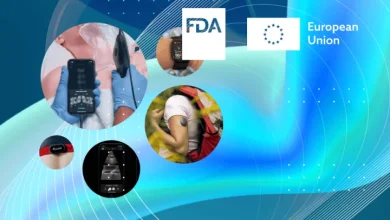
Medical Billing and Coding Jobs
Medical Billing and Coding Job Description
One of the most vital functions in the healthcare industry is proper medical billing and coding. That is because one of the most significant burdens to patients and healthcare facilities is ensuring that insurance claims are processed accurately so that services are paid, and patients are not financially overwhelmed.
According to the Bureau of Labor Statistics, the medical billing field is growing rapidly, and along with other medical secretarial jobs, is forecast to grow by 8% through 2031.
Medical billing and coding professionals help to update patient medical records and process accounts receivables. Medical billing workers know which codes are associated with every medical and diagnostic procedure. They enter the appropriate codes into patient health records before sending the information to insurance companies for processing.
There are multiple interrelated medical billing and coding job positions, including:
- Medical Billing Specialist
- Medical Coder
- Medical Coding Specialist
- Medical Records Technician
- Medical Records Specialists
- Medical Records Clerk
- Medical Records Coordinator
- Health Information Specialist or Clerk
Though the names for medical billing and coding positions might vary from state to state and place of employment, most involve similar job duties and responsibilities which may include:
- Promptly receiving, reviewing, maintaining, and organizing medical data in electronic health records
- Entering health records into databases
- Inputting relevant codes into software for insurance reimbursement
- Maintaining confidentiality of patient data
- Acting as a liaison between a healthcare facility and an insurance company
Medical billing and coding jobs are performed in an office environment, often in a healthcare facility, and sometimes, remotely, from home.
A medical coding and billing career can afford you a chance to work in a thriving industry that continues to grow.
Medical Billing and Coding Jobs Salary
The Bureau of Labor Statistics places the average salary for medical billing and coding specialists at $48,310 a year.
However, the top 10% of specialists earned more than $74,200. The facility where you work also has an impact. Hospitals usually pay higher salaries than physician offices.
In addition, if you get credentials to work in the medical coding field, it’s possible to earn more than average.
For instance, medicalbillingandcoding.org points out that one Certified Professional Coder (CPC) Credential can help you earn an average of $52,605 a year, while two credentials could give you a salary of $60,305 a year. If you get three credentials, you could earn even more at $66,999.
For Instance
Texas Health Resources has several medical coding positions located in Arlington and Dallas. Fortune magazine recently named Texas Health Resources one of the best 100 companies to work for. It is one of the largest non-profit health systems in the U.S. and is based in Texas.
City of Hope often has openings for medical billing and coding jobs. These jobs can include collection, coordinator, or supervisor roles.
RWJBarnabas in New Jersey is advertising five medical coding jobs in multiple locations. RWJBarnabas is a leading academic health system serving patients at multiple facilities.
Medical Billing and Coding Training and Requirements
The training requirements to become a medical billing and coding specialist will vary from one employer to the next. Some coders move on from other administrative positions and receive training on the job.
But most employers prefer formal training in their medical billing and coding job candidates. Some positions may also require certification.
Most medical coding and billing programs can be completed in under a year, while an associate’s degree can take up to two years.
In addition, some soft skills and technological prowess are beneficial to have as a medical billing coder. These include:
- Good organizational skills
- Excellent decision-making skills
- Writing prowess, particularly in grammar and accuracy
- Good attention to detail
- Great communication and interpersonal skills
- The ability to work in a challenging and high-stress environment
- A focused and persistent mindset
- Familiarity with accounting, medical conditions, and medical procedure software
- Experience with databases
- Knowledge and/or experience with medical software, EHR programs, and Healthcare Coding Systems
While some of the technological skills might be covered in a formal training program, you may need specific training on the job as programs and software vary from one place of employment to another.
In addition, some employers prefer candidates who have received certification. AAPC certification might be helpful to advance your career.



